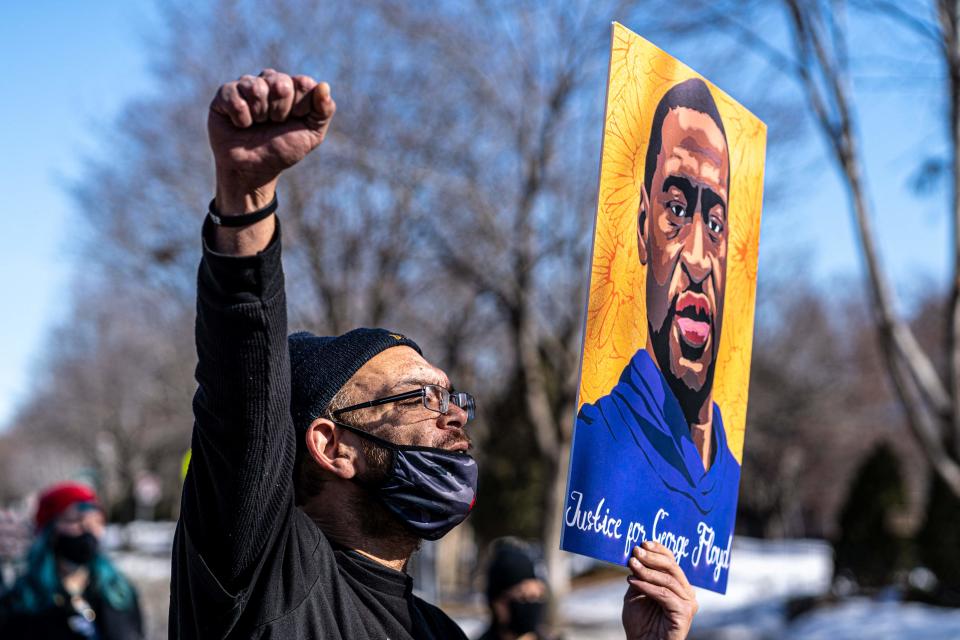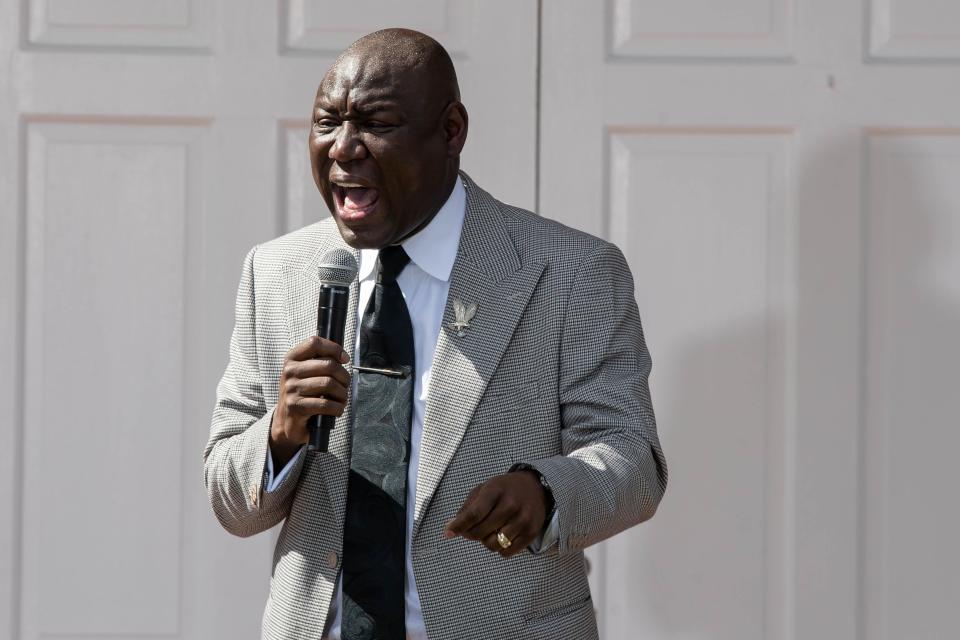Floyd family attorney: As Derek Chauvin trial begins, progress shows the power of protests
If you were among the scores of Americans who took to the streets in the wake of George Floyd’s horrific death to make a statement that Black lives matter, if you risked tear gas, riot gear and real or rubber bullets, if you were carted away and held for hours for no other reason than exercising your First Amendment rights, rest assured that your sacrifices were not wasted.
By raising your voice and exerting your rights to peaceably assemble and petition the government for a redress of grievances, you ensured that change would come and that Floyd’s death would not be in vain.
We saw evidence of change when Derek Chauvin — the officer who killed Floyd by grinding a knee into the unarmed Black man's neck — was charged with second-degree murder and manslaughter, something that rarely happens in police brutality cases. A third-degree murder charge may also be added.

Jury selection in the Chauvin trial begins Monday. Opening statements are slated for March 29. A guilty verdict would also show progress — a long overdue sign that America is finally ready to not just confront but eradicate the racism mired in police activity that has been evident but ignored for decades.
While there is a tremendous amount of work left to do, evidence of progress is everywhere: Chokeholds have been banned in municipalities from Seattle to Broward County, Florida. No-knock warrants were banned in Louisville, Kentucky. Illinois Gov. JB Pritzker signed into law sweeping criminal justice and police reforms to hold officers accountable and root out systemic racism. And last Wednesday, the U.S. House of Representatives passed the George Floyd Justice in Policing Act that, among other things, bans qualified immunity.
That progress is the power of protest as guaranteed in the Bill of Rights.
COLUMN: 9-year-old girl's brutal treatment at hands of police shows dangerous lapse in policy
But the battle for equality in the justice system isn't over. Florida Gov. Ron DeSantis, for example, would unplug the power of the people. DeSantis — who emerged from the recent Conservative Political Action Conference as the most popular potential successor to his mentor, former President Donald Trump, in a straw vote — is pressing hard to pass legislation that would work at “combating public disorder.”
The governor first floated the idea after Floyd protests blanketed the country, and he said cracking down on riots and demonstrations was necessary to curb violent protests.
The bill would increase penalties for illegal actions during riots and would make it a felony to destroy any memorial in the state, such as a statue of a slavery proponent, Civil War hero or white supremacist.
COLUMN: Warnock, Ossoff make history. What their Senate wins say about the 'defund police' slogan
This legislation is in fact a direct assault on the Black Lives Matter movement and is surely intended to have a chilling effect on attendance at protests. Which it will.
Given the tens of thousands of people who were arrested during the Floyd protests simply as a form of harassment, upping the penalties for being in the wrong place at the wrong time — even to do the right thing — will doubtless keep many peaceful protesters home.
The small number of people who engaged in criminal behavior during the summer protests have been arrested and are being prosecuted — as are some of the Trump flag-toting protesters who stormed the U.S. Capitol on Jan. 6, claiming lives, interrupting the work of democracy and desecrating the historic spaces where our government functions.

The new Republican Party, led by Trump acolytes such as DeSantis, complains of “cancel culture” and censorship of free speech. But they don’t mind canceling the chance for Americans to reform dangerous parts of our culture, including officers such as Chauvin who are corrupt and pose a threat to Black and brown people.
The GOP defends free speech when practiced by the former president, even when it foments a riot at the very heart of our democracy. But it would limit free speech by Black Lives Matter proponents by making it too risky and threatening to attend a protest.
Protesters in Minneapolis and elsewhere must observe the law, of course, but they shouldn't be afraid to show up. The Americans who took to the streets to raise their voices can claim significant responsibility for the progress we've made so far. And the work is far from over. Either we all continue to show up or we continue to live with deep, systemic racial injustice — and that is just unacceptable.
Ben Crump, a civil rights and personal injury attorney, is founder of the national law firm Ben Crump Law, based in Tallahassee, Florida. He represents the Floyd family.
You can read diverse opinions from our Board of Contributors and other writers on the Opinion front page, on Twitter @usatodayopinion and in our daily Opinion newsletter. To respond to a column, submit a comment to letters@usatoday.com.
This article originally appeared on USA TODAY: George Floyd: As Derek Chauvin trial begins, lawyer Ben Crump reflects

 Yahoo Movies
Yahoo Movies 
